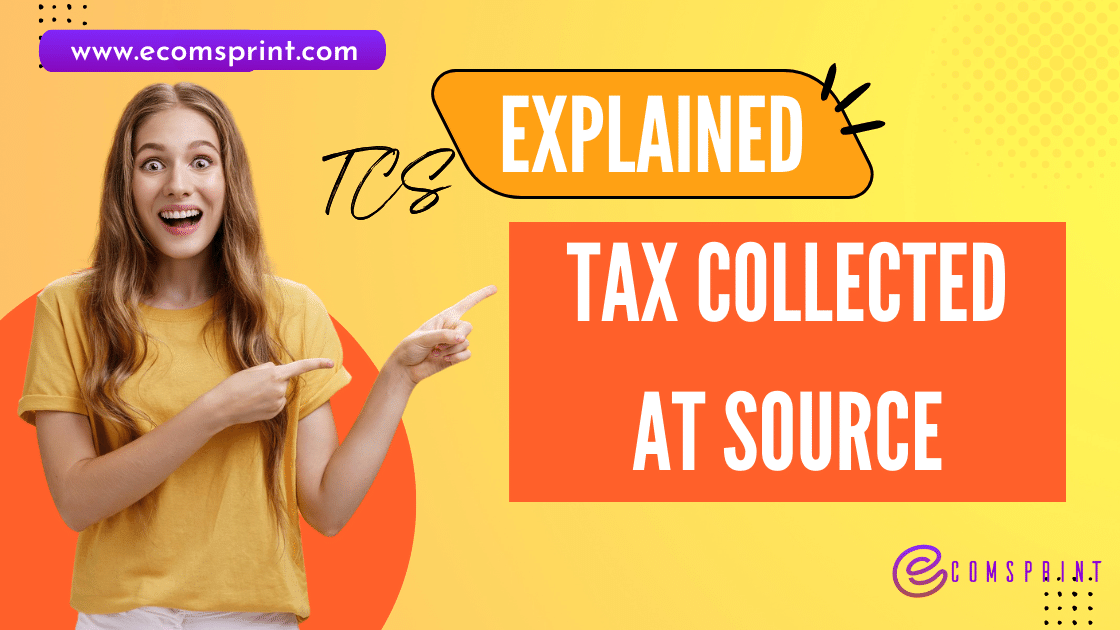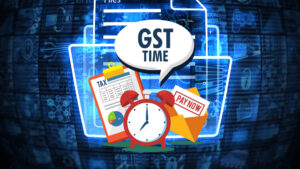TCS (Tax Collected at Source) concepts could be confusing if you are a new business owner or and eCommerce seller. But today, if you read this article all your doubts will be cleared and you will have an in-depth understanding of how TCS(Tax Collection at Source) works, who needs to collect and pay TCS, how to claim TCS, on which goods TCS is applicable, TCS rates and much more.
So I request you to read the article thoroughly for complete understanding. If you are a seller on Online Marketplace like Flipkart and Amazon click the button below to quickly scroll to the section below. Let’s get started.
What is Tax Collected at Source (TCS)?
TCS is the tax payable by a person which he collects from a buyer at the time of sale.
TCS will be governed through section 206 C of the Income Tax act, 1961.
Who can collect TCS?
These organizations and persons are classified as sellers under section 206C of the Income Tax Act.
- Central Government
- State Government
- Local Authority
- Statutory Corporation or Authority
- Company registered under the Companies Act
- Partnership firms
- Co-operative Society
- Any person or HUF is liable to get his accounts audited under the Income-tax act
When can TCS be collected?
Please note TCS need not be collected when these goods are utilized for the purpose of manufacturing, processing or producing things. TCS will be collected only when these goods are utilized for trading purpose.
From whom TCS is Collected?
TCS is collected from a buyer who is an individual or single entity and obtains goods or even the right of receiving goods at a sale, tender, auction or other modes.
If you are looking for a solution for managing sales & returns for multiple marketplaces and simplified GST return filing then fill out this form.
From whom TCS is not to be Collected?
People and organizations who are exempted from the classification as buyers for TCS (Tax Collected at Source):
- Public Sector Entities or Companies
- Central Government
- State Government
- Embassy of High Commission
- Consulate and other Trade Representation of a Foreign Nation
- Clubs such as sports clubs and social clubs
Goods which comes under TCS rule?
The goods will come under the TCS provision and the rates applicable to them are mentioned in the table below:
| Goods | TCS Rates |
| Liquor of alcoholic nature, made for consumption by humans | 1% |
| Timber wood under a forest leased | 2.50% |
| Tendu leaves | 5% |
| Timber wood by any other mode than forest leased | 2.50% |
| A forest produce other than Tendu leaves and timber | 2.50% |
| Scrap | 1% |
| Minerals like lignite, coal, and iron ore | 1% |
| Bullion that exceeds over Rs 2 lakhs/ Jewellery that exceeds over Rs 5 lakh | 1% |
| Purchase of motor vehicle exceeding Rs 10 lakhs | 1% |
| Parking lot, toll plaza and mining and quarrying | 2% |
TCS Payments and Returns
TCS Payment Due Date and Deadline
Now let’s learn about TCS payments and returns: TCS is to be deposited within 7 days from the last day of the month in which the tax was collected.
For example, if tax got collected on 7th August, it is to be deposited on or before 7th September.
However if TCS is collected by any office of the government it has to be deposited on the same day of collection.
TCS Return Filing Due Date
Every tax collector will have to submit quarterly TCS returns through Form 27EQ. This return should we file on or before 15th of the month succeeding the quarter.
The returns of quarter ending on 31st March can we filed on or before 31st May.
For example, the return for quarter Oct-Dec, should we file on our before 15th January.
Penalty for Non Deposit of TCS
If the tax collector fails to collect the tax or not deposited the tax collected to the government as per the stipulated due dates, then he or she will be liable to pay interest of 1% per month or a part of the month.
This interest on delay of the payment of TCS to the government should be paid before filing the return.
Important Points Light Box
What is TCS Certificate | TCS Certificate Format
Now let’s look at the certificate of TCS
The tax collector has to provide a TCS certificate to the purchaser of the goods in form 27D.
This certificate should have the following details:
1. Name of the buyer and seller
2. TAN of the seller
3. PAN of both the buyer and seller
4. Total tax collected by the seller
5. Date of collection
6. The rate of tax applied
Please no that the certificate has to be issued within 15 days from the date of filing TCS quarterly returns.
TCS for eCommerce Sellers | TCS concept for Amazon and Flipkart Sellers
Tax Collection at Source concept in eCommerce
According to the GST law, all e-commerce operators are required to collect 1% of the net value of taxable sales. The sum collected using the aforementioned methods is known as Tax Collection at Source (TCS) and must be remitted monthly to the government by e-commerce operators.
The seller will be able to offset their output tax liabilities with this TCS credit. The TCS rules for eCommerce operators is effective from on October 1, 2018.
TCS Calculation for eCommerce Sellers
TCS is calculated based on the net value of taxable supplies of goods and services, which is the value of goods sold by the Seller during the GST-payable month minus Sales Returns.
TCS Calculation for Intra State and Inter State
The rate of TCS is notified by the Government as 1%.
For Intra-state transactions it is SGST% / UTGST% and CGST% – 0.5% each and for Inter-state transactions it is IGST % – 1%.
If you are looking for a solution for managing sales & returns for multiple marketplaces and simplified GST return filing then fill out this form.
How to claim TCS Credit?
The details of the TCS collected would be reflected in the seller’s GST portal.
For verifying the TCS credit at your GST portal:
Login –> Select month
–> Click on “TDS and TCS credit received”
–> Click on ‘TCS credit received’
–> Select GSTIN wise TCS details and accept
–> Accept the declaration and proceed to file
–> File TCS credit received summary
–> Check for balance in electronic cash ledger
Let us know your feedback on this article “TCS Tax Collected at Source Explained” in the comments below 👇

Sunil Kumar Sah @DigitalSunilSah
Sunil is an E-commerce Seller, Blogger, YouTuber and Digital Marketer. He is a digital enthusiast and passionate about Online Selling. He loves sharing my knowledge and experiences on eCommerce in this blog and on his Hindi YouTube Channel “Ecommerce with Sunil“






